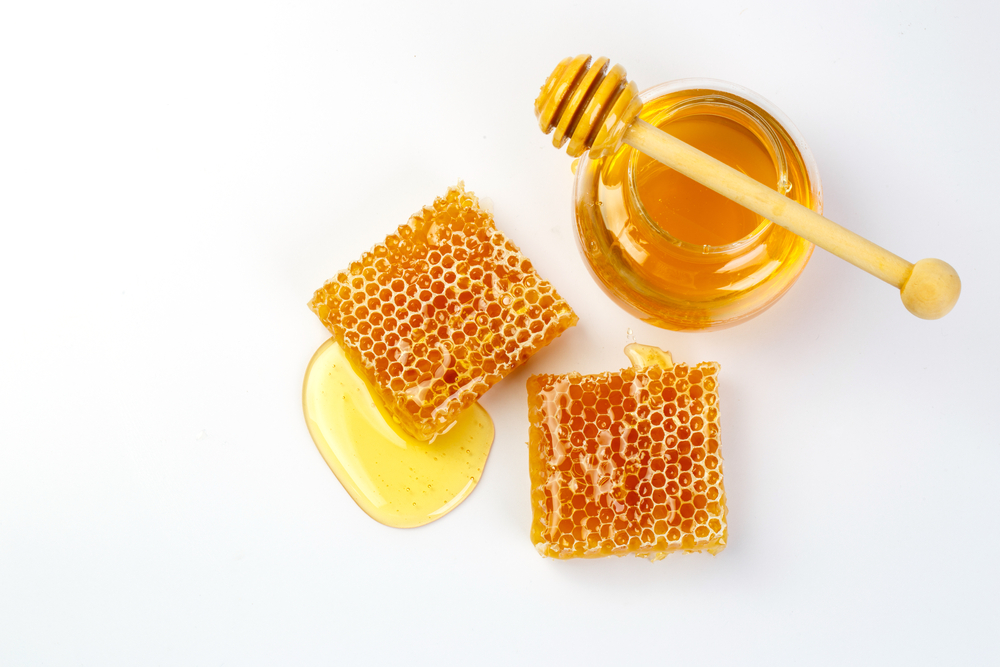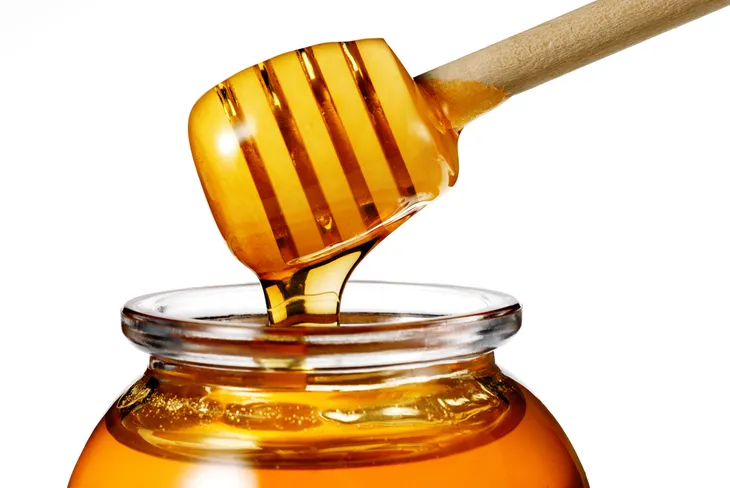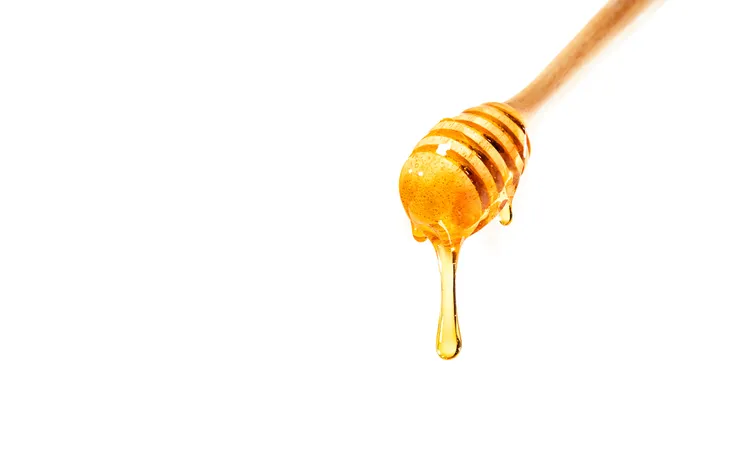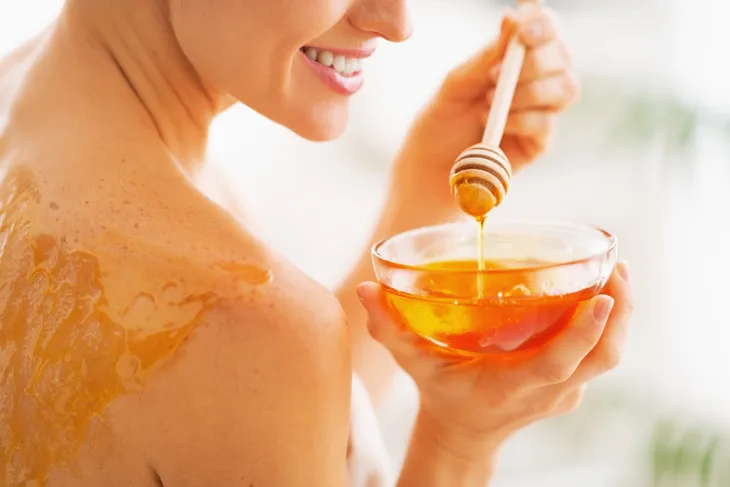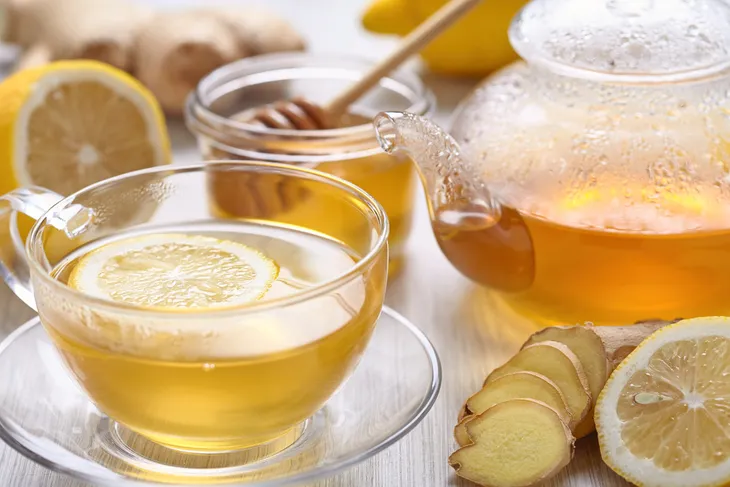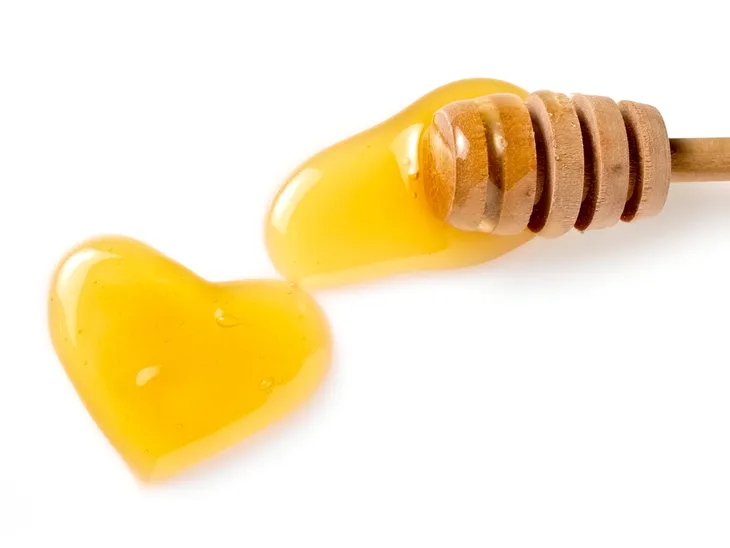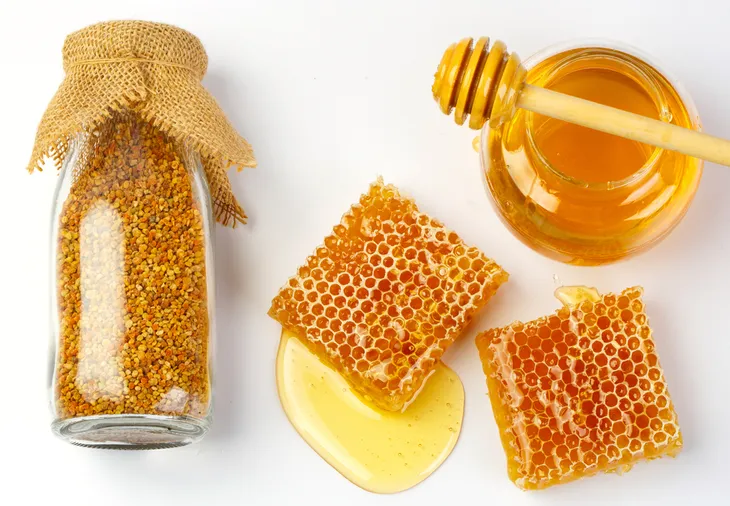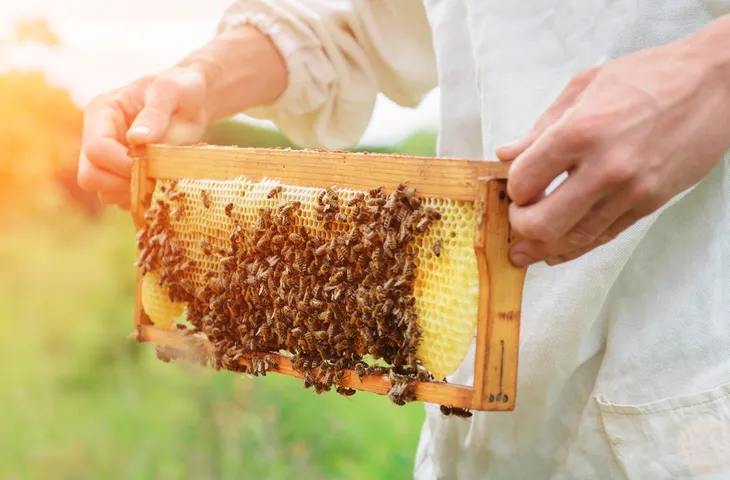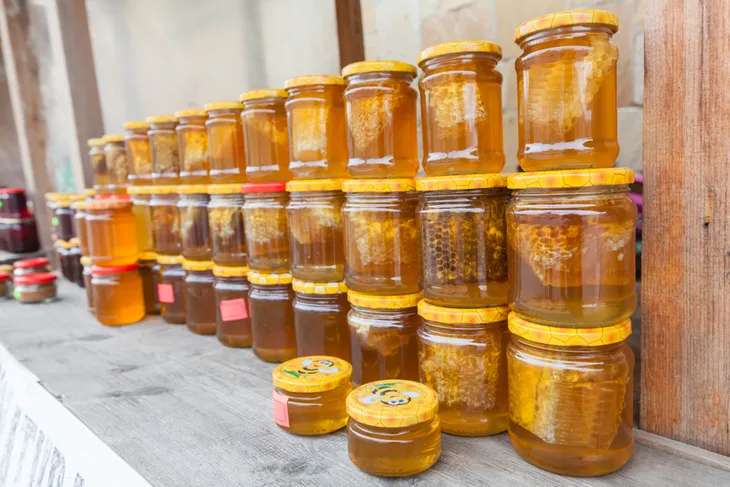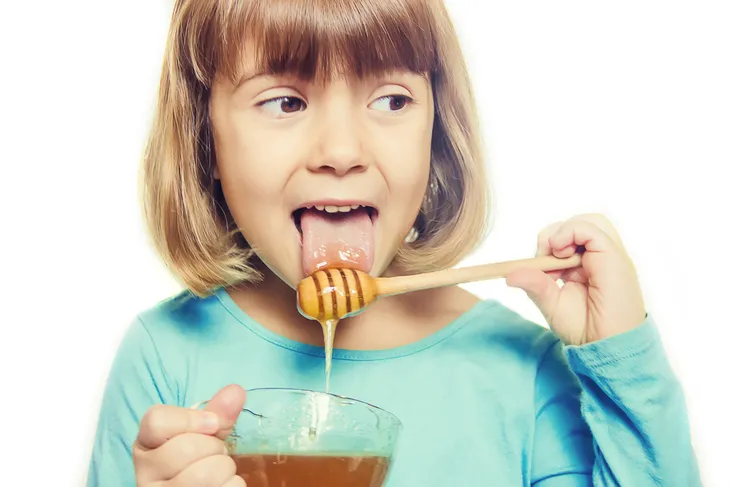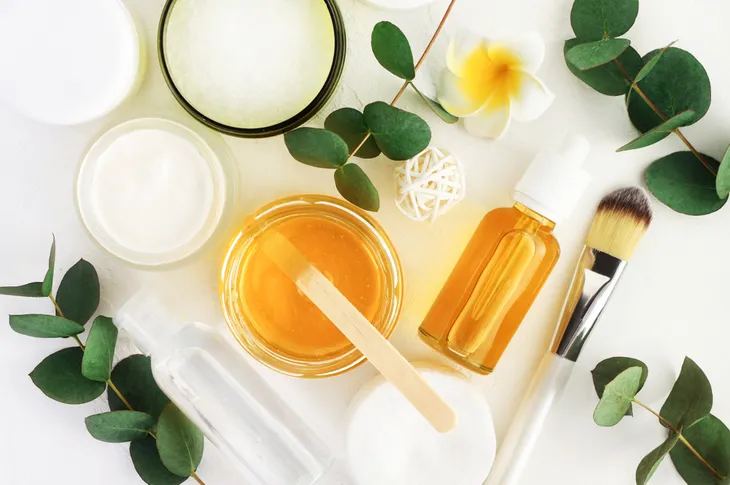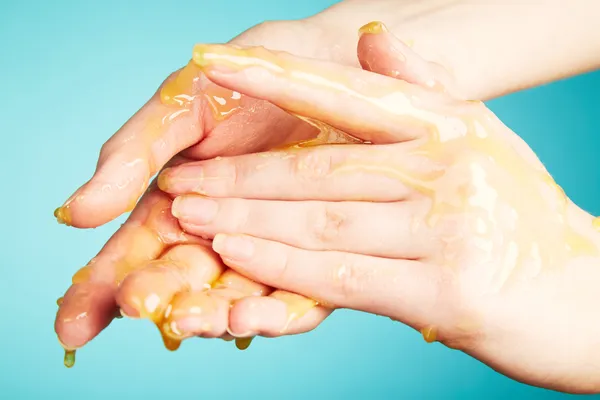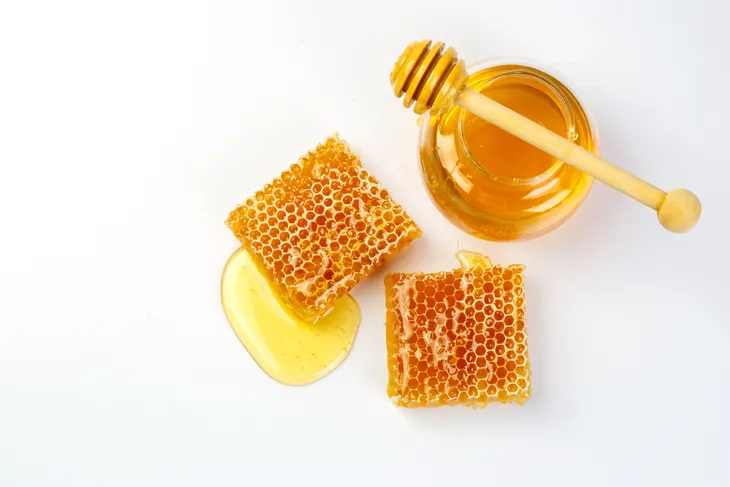When we think of honey we typically think of summertime when the bees are buzzing around, moving from flower to flower, and just how sweet it is to eat! You might be surprised to learn that there’s a lot more to food than just being a tasty treat. It’s loaded with antioxidants and antibacterial compounds that give it healing powers!
In fact, honey has been used for thousands of years, dating back to the ancient Egyptians who not only used it as an offering to their gods, but to treat and heal wounds, says WebMD. Today it’s favored not only for it’s sweetness, but also as a useful remedy to treat coughs, sore throats, and improve skin health.
To learn more about this all encompassing food, here’s a look at 18 incredible and useful health benefits of honey…
1. Heals Wounds and Burns
We’re gonna start off with one of the most incredible benefits of honey…it’s healing powers! Honey has natural antibacterial wound healing effects. Peter Charles Molan at the University of Waikato, New Zealand found that “honey reacts with the body’s fluids to make hydrogen peroxide, creating an in hospital environment for bacteria,” writes Dr. Axe.
The source goes on that explain that in addition to treating wounds, honey can be used to treat burns. For treatment, apply honey directly onto the affected area. Dress it and change the dressing every 24 to 48 hours. In some cases the dressing will need to remain on for up to 25 days. (Honey can also be used to reduce the size and pain of skin ulcers).
Manuka honey is what’s commonly used to treat wounds like chronic leg ulcers and pressure sores, says WebMD. This type of honey comes from New Zealand and is the basis of Medihoney which was approved by the FDA in 2007 for treating wounds and skin ulcers. “Medihoney has been our standard for healing wounds in the past year, since it started coming on the market,” says specialist Frank Bongiorno, MD, of Ann Arbor, Mich.
2. Anti-Inflammatory
Honey contains phenolic compounds which give it the ability to reduce inflammation and slow down tumor growth.”Inflammation is a defensive response by cells and tissues and can be either acute (the way a bug bite swells) or chronic (the way joints become swollen and stiff) in nature,” writes MindBodyGreen.
The source notes that honey has proven to be effective in treating inflammation in the lungs (for coughs and asthma), throat and brain. “From diminishing airway inflammation to reducing neuroinflammation and supporting the recovery of function and memory, honey can tame the cellular havoc caused by oxidation and disease.”
3. Used as Body Wash
Okay so this one isn’t really a health benefit, but hygiene is linked to health, right?! Honey can be used as a great moisturizer (we’ll get to that later), which means it also makes a great body wash that will moisturize and kill any acne or odor causing bacteria.
To make your own body wash at home, Reader’s Digest advises combining 2-teaspoons of honey with 1-tablespoon olive oil. You can make it even more relaxing by adding lavender, almond oil, or vitamin E oil which provide a nice soothing and fragrant smell.
4. Natural Cough Suppressant
According to Reader’s Digest, honey can be just as effective as the dosage of dextromethorphan in cough suppressants. This is because “honey acts as a demulcent, forming a film in the throat to provide relief from the irritation that causes coughing.” The source advises taking 2-teaspoons before bed to soothe any nighttime coughing that might be keeping you awake.
WebMD backs this claim up by citing a study which looked at 139 children suffering from a nighttime cough and found that “honey beat out dextromethorphan (a cough suppressant) and diphenhydramine (an antihistamine),” writes WebMD. Another study looking at 105 children found that “buckwheat honey trumped dextromethorphan in suppressing nighttime coughs.”
If a sore throat is what you’re suffering from then try mixing ½ cup of water with 1-teaspoon of grated ginger, ½ a lemon and 1-teaspoon of honey.
5. Good for Heart Health
Like many other foods that are incredibly good for us, honey is loaded with antioxidants. These antioxidants are what make honey great for heart health because they help lower the risk of heart disease. “They may help the arteries in your heart dilate, increasing blood flow to your heart. They may also help prevent blood clot formation, which can lead to heart attacks and strokes,” writes Healthline.
For example, a study examining rats found that honey was able to protect the heart from oxidative stress. Unfortunately, there aren’t any human studies to reference, so it can’t be said for sure, but a little bit of honey consumption here and there wouldn’t hurt!
6. Lower Blood Pressure
Similar to LDL cholesterol which we’ll get to next, blood pressure can be a risk factor for heart disease, so it’s important to maintain a nice low blood pressure. “This is because it contains antioxidant compounds that have been linked to lower blood pressure,” writes Healthline. It goes on to reference rat and human studies which have shown blood pressure reduction after consuming honey.
7. Improve Cholesterol
High LDL cholesterol is a big risk factor for heart disease, so anything that can help lower cholesterol is good in our books! Healthline writes that high LDL cholesterol “plays a major role in atherosclerosis, the fatty buildup in your arteries that can lead to heart attacks and strokes.” The source goes on to note that there are several studies that reference honey as being able to improve cholesterol levels by lowering our “bad” LDL cholesterol and raising the “good” HDL cholesterol.
To back this claim up Reader’s Digest cites a Dubai study which looked at participants who consumed a glucose solution versus those who had 250-millilitres of water with 75-grams of natural honey. The results showed those who consumed the honey for 15 days “lowered their total and ‘bad’ low-density lipoprotein (LDL) cholesterol, while raising “good” high-density lipoprotein (HDL) cholesterol,” writes the source.
8. Treat Mosquito Bites
There’s nothing more annoying than an itchy, scratchy mosquito bite! While there’s plenty out there to help ward off mosquitos, what can we do when we’ve already gotten bit? Surprisingly honey is more than just a tasty treat. It can be used on our skin to relieve itchiness and irritation. This is because it has anti-inflammatory properties.
Health24 recommends dabbing a little bit directly on the bite and let the antimicrobial properties get to work to relieve the symptoms and prevent any infection.
9. May Help Recover From Hangovers
According to Health24, honey can be used as a remedy for recovering from a nasty hangover. “The fructose in honey helps the body break down alcohol into harmless by-products. Honey also contains powerful antioxidant properties that can neutralize the harmful effects of alcohol,” says the source.
While honey can help recover from a bad hangover due to it’s fructose and glucose, it’s not a recommended remedy. This is because studies have shown that while honey has the ability to “increase alcohol metabolism,” you’d have to use about “2-ounces of honey (8-tablespoons) per 25-grams of alcohol, which would be able 480 calories worth of honey,” writes SELF.
10. Contains Antioxidants
Antioxidant-rich foods have long be touted as the healthiest foods to eat because they come with so many amazing health benefits. Antioxidants help fight off diseases and boost our immune system. “Honey contains polyphenols, which are powerful antioxidants that have been shown to reduce the risk of heart disease and cancer,” writes Dr. Axe.
The source cites a study that fed 25 subjects four tablespoons of honey a day for 29 days and at the end of the study, their blood samples were taken which showed the honey increased their levels of disease-fighting polyphenols. It also references other studies which show honey contains “disease-fighting antioxidant flavonoids pinocembrin, pinostrobin and chrysin.”
Healthline advises choosing high-quality honey because it will contain “organic acids and phenolic compounds like flavonoids.” It is the combination of these compounds that scientists believe give it its antioxidant power.
11. Help Treat Pollen Allergies
There is a bit of debate surrounding this one, but Dr. Axe states that raw honey has the ability to not only fight off infections, but also provide relief from allergies because it contains bee pollen. This is referred to as immunotherapy. Eating local raw honey will help an allergy sufferer to slowly desensitize themselves to the local pollen that causes their reaction because the honey contains local pollen. “Many seasonal allergy sufferers have found local, raw honey to be helpful because it desensitizes them to the fauna triggering their allergic reaction,” writes the source.
A study published in the journal Annals of Saudi Medicine found that consuming a high dose of honey on a daily basis over the course of eight weeks has the ability to improve symptoms. “Researchers observed that the honey consumption improved overall and individual symptoms of allergic rhinitis,” writes Dr. Axe.
“Allergic rhinitis is an allergic response that causes itchy, watery eyes, sneezing and other similar symptoms.”
The source also notes that this remedy only works if it’s raw honey because pasteurized honey doesn’t contain any pollen.
12. Boost Energy
Made up of 80-percent sugar, 18-percent water, and the rest vitamins, minerals, pollen and protein, raw honey can be used as a natural energy source. “It provides an easily absorbed supply of energy in the form of liver glycogen, making it ideal for energetic morning starts and as a pre and post-exercise energy source,” writes Dr. Axe.
To back this claim up, the source cites a study conducted at the University of Memphis Exercise and Sports Nutrition Laboratory which found that honey is one of the best carbohydrates to consume before exercising. Commonly referred to as “the perfect running fuel,” Dr Axe says some studies have referred to it as “a sporting fuel, honey performs on a par with glucose, which is the sugar used in most commercial energy gels.”
13. Promote Healthy Skin
Honey can be used as a moisturizer because “the sugar molecules hold water in the skin,” writes Reader’s Digest after talking to dermatologist Patricia Farris, MD. When used as a moisturizer, honey will leave a film on the skin which seals in water, says dermatologist Zoe Diana Draelos, MD. She recommends using products that have honey extract instead of using just honey on it’s own. There are also lots of DIY remedies that can be concocted at home for those on a budget.
In addition to moisturizing the skin, the antimicrobial properties in honey make it useful for treating acne. It works to reduce inflammation, says Joy Green, author of Joey Green’s Magic Health Remedies to Readers Digest. To make your own remedy at home try mixing honey and nutmeg and apply it to the pimple. Leave it on for about 20-minutes before washing it off.
14. Aid Digestion
In addition to treating nausea and morning sickness, honey can be used to aid digestion because in combats constipation and bloating, says Health24. “It is also rich in friendly bacteria which act as a probiotic and keep the digestive and immune system healthy,” writes the source. To make your own remedy at home, try adding honey and lemon to some tea.
In addition to improving digestion, honey can also be used to treat ulcers by relieving pain and encouraging along the healing process. Health24 recommends taking 1 to 2-teaspoons on an empty stomach three times a day.
15. Treat Dandruff
Dandruff can be uncomfortable and even a little embarrassing. There’s nothing more annoying than a dry, itchy scalp! Luckily honey can be used to soothe the itchiness and prevent those little flakes from showing up. Reader’s Digest states that researchers have found that honey can be used “on patients suffering from seborrheic dermatitis and dandruff and found that using honey wash relieved itching and improved scaling.” It can be effective even for those people who only have it on an occasional basis like in the winter when the air is dry.
Before showering, take some honey and dilute it with some warm water. Moisturize it into the scalp for about 2 to 3-minutes and then rinse.
16. Boost Immunity
We’ve already discussed how honey can be a useful little remedy when we’re sick, but it can also be used as a preventative measure to boost immunity! Shape writes that honey is full of polyphenols, “a type of antioxidant that helps to protect cells from free radical damage. It can also contribute to heart health as well as protect against cancer.”
17. Promotes Sleep
Do you have trouble falling asleep or getting enough sleep that you feel fully refreshed in the morning? Dr. Axe says consuming raw honey before going to bed can help “restock the liver’s glycogen supply and prevent the brain from triggering a crisis search for fuel, which can wake you up.” It also states that raw honey “fosters the release of melatonin in the brain by creating a small spike in [the hormone that regulates the amount of glucose in the blood] levels, which stimulates the release of tryptophan in the brain.” Tryptophan plays an important role in helping us sleep because it converts to serotonin which then converts to melatonin.
The source also goes on to explain the other health benefits of melatonin which include boosting immunity and helping rebuild tissue during rest. By helping us sleep it lowers our risk of hypertension, obesity, type 2 diabetes, heart disease, stroke and arthritis. “As honey is a proven natural sleep aid, it naturally lowers the risk of all these health problems.”
18. Weight Management
It might seem odd that someone so high in sugar is able to help with weight loss, but according to Dr. Axe, there are studies which have linked honey consumption with weight loss. First up is a study conducted by San Diego State University which found that replacing sugar with honey can “prevent packing on extra pounds and also lower blood sugar,” writes Dr. Axe.
A double-blind study from the University of Wyoming found that raw honey can suppress appetite. “Appetite hormones and glycemic responses were measured in 14 healthy non-obese women after consuming a breakfast containing either honey or sugar. Overall, researchers concluded that honey consumption offers potential obesity protective effects.”
You’ll reap the best benefits of any food when it’s purchased in its natural state. You’re always better to sweeten food yourself so that you can control how much sugar is in it than rely on companies to do it with added sugars. This rings true with honey. SELF advises no more than 6-teaspoons of honey per day and that’s if it’s the only added sugar you’re eating. If you’re consuming more sugar than that in a day, you’d want it to be even less. Never consume more than 6-teaspoons of sugar a day.
